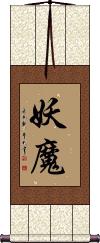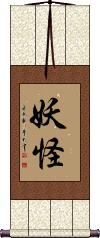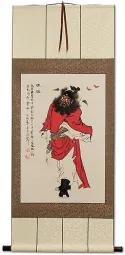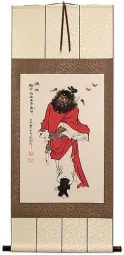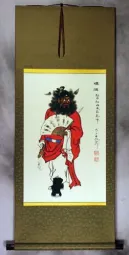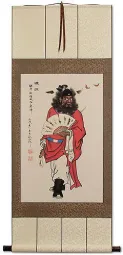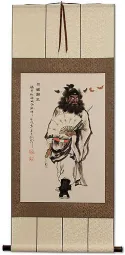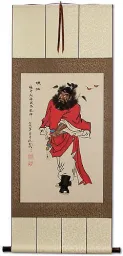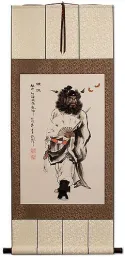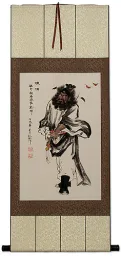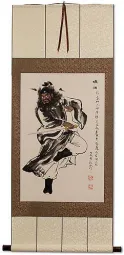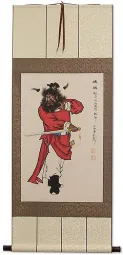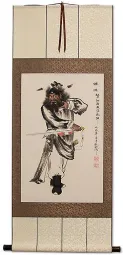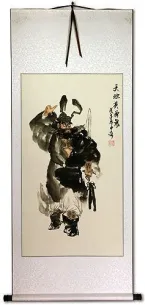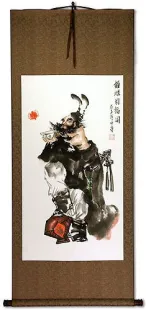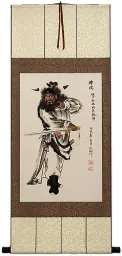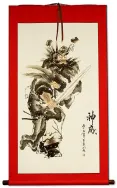Many custom options...
And formats...

Demon Ghost Apparition in Chinese / Japanese...
Buy a Demon Ghost Apparition calligraphy wall scroll here!
Personalize your custom “Demon Ghost Apparition” project by clicking the button next to your favorite “Demon Ghost Apparition” title below...
Demon / Ghost / Apparition
Ghost / Apparition / Phantom
妖怪 is a Chinese, Japanese Kanji, and old Korean Hanja word that can be defined as a devil, ghost, apparition, phantom, specter/spectre, demon, monster, or goblin.
This in-stock artwork might be what you are looking for, and ships right away...
Zhong Kui Ghost Warrior Of China Wall Scroll
Discounted Blemished
Gallery Price: $53.00
Your Price: $29.00
Zhong Kui Ghost Warrior
Large Wall Scroll
Discounted Blemished
Gallery Price: $65.00
Your Price: $36.00
Gallery Price: $108.00
Your Price: $59.88
Not the results for demon ghost apparition that you were looking for?
Below are some entries from our dictionary that may match your demon ghost apparition search...
| Characters If shown, 2nd row is Simp. Chinese |
Pronunciation Romanization |
Simple Dictionary Definition |
妖怪 see styles |
yāo guài yao1 guai4 yao kuai youkai / yokai ようかい |
More info & calligraphy: Ghost / Apparition / Phantomghost; apparition; phantom; spectre; specter; demon; monster; goblin; yōkai |
妖魔 see styles |
yāo mó yao1 mo2 yao mo youma / yoma ようま |
More info & calligraphy: Demon / Ghost / Apparitionghost; monster; demon; phantom; apparition |
妖鬼 see styles |
youki / yoki ようき |
ghost; apparition; phantom; spectre; specter; demon; monster; goblin |
お化け see styles |
obake おばけ |
(1) goblin; monster; demon; (2) ghost; apparition |
御化け see styles |
obake おばけ |
(1) goblin; monster; demon; (2) ghost; apparition |
Variations: |
obake(p); obake おばけ(P); オバケ |
(1) (kana only) ghost; apparition; (2) (kana only) goblin; monster; demon; (3) (kana only) something unusually large |
Variations: |
obake(p); obake おばけ(P); オバケ |
(1) (kana only) ghost; apparition; (2) (kana only) goblin; monster; demon; (3) (kana only) something unusually large |
The following table may be helpful for those studying Chinese or Japanese...
| Title | Characters | Romaji (Romanized Japanese) | Various forms of Romanized Chinese | |
| Demon Ghost Apparition | 妖魔 | you ma / youma / yo ma | yāo mó / yao1 mo2 / yao mo / yaomo | |
| Ghost Apparition Phantom | 妖怪 | you kai / youkai / yo kai | yāo guài / yao1 guai4 / yao guai / yaoguai | yao kuai / yaokuai |
Successful Chinese Character and Japanese Kanji calligraphy searches within the last few hours...
